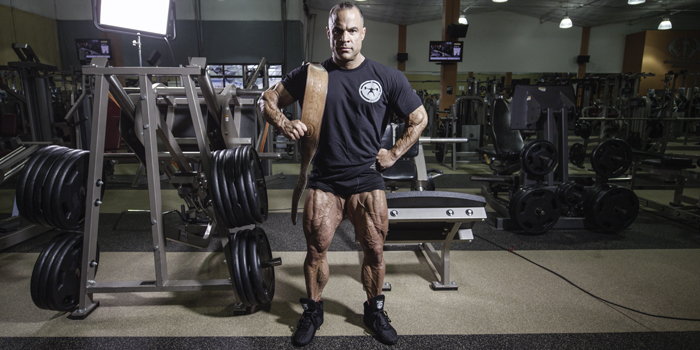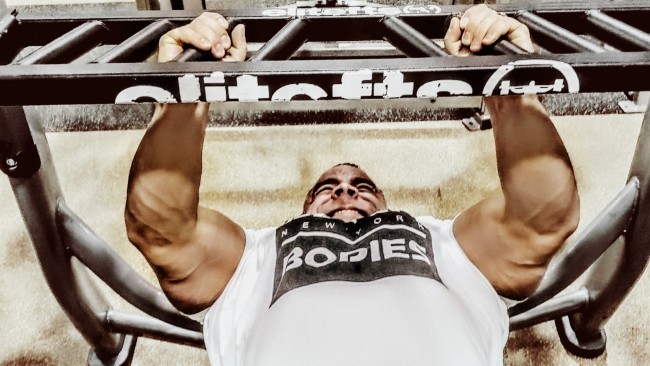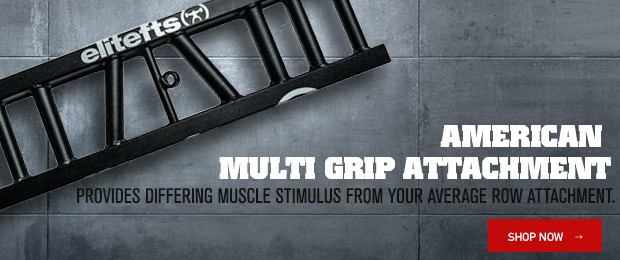
Blind Spot — Noun; an area where a person's view is obstructed or an area in which a person lacks understanding or impartiality.
Most blind spot references typically relate to the area in the adjacent lane whereby the driver or passenger’s side mirror fails to show the presence of other vehicles. Avoiding an accident when changing lanes requires looking over one’s shoulder to check the blind spot. Car manufacturers began eliminating the need by adding blind spot monitoring systems that include a warning light on the side mirrors to indicate another vehicle's location. In this article, I intend to touch on ways to avoid blind spots — in life, training and competition prep.
RECENT: 5 Cable Exercises You Should Be Using
Avoiding a car accident prior to blind spot monitoring systems required action on the part of the driver. You physically had to turn your head to check your blind spot. Regardless of which aspect of avoiding blind spots I touch upon in the next few minutes, don’t lose sight of the single fact that action is a prerequisite. Without the willingness to act, you’re never going to avoid them, because here’s the thing about blind spots: you’re blind to them. Don’t think you’re the exception. We all have blind spots.
Life in General
Realizing we all have blind spots requires humility — the type of humility that says, “I don’t have it all figured out. I’m willing to take action to avoid blind spots in relationships, work, and [fill in the blank].” Humility coupled with action is critical to success. So what sort of action? I see two primary ways to act.
First, re-read the definition above. A blind spot includes a lack of understanding, so overcoming a blind spot requires education. You’re reading this on elitefts.com, so you’ve come to the right place. A core focus of this website and its founder Dave Tate is education. Self-awareness and a progressive mindset mean we never stop learning and pursuing knowledge. Nobody is going to read articles, books, or attend seminars for you. Think in terms of computers. We’re all blessed with hardware: a brain. However, many neglect learning and as a result operate on outdated software. Do you need to upgrade? Education is a journey, not a destination. Never stop learning and spending time around people smarter than you.
Second, aside from getting around people smarter than you, give trusted friends license to speak into your life. If blind spots by nature include areas obstructed from your view, dealing with them depends upon someone pointing them out. Allow a couple trusted friends to tell you the hard truth when they notice a blind spot in your life.
Training
All that holds true in life is relevant to blind spots in training. In the world of social media, everyone is a self-professed expert, so deciphering fluff from substance proves a little more daunting. Regardless, education and oversight is vital when in pursuit of elite-level performance in bodybuilding, powerlifting, or otherwise. I adamantly say that the onus of learning sits on your shoulders. Don’t shirk the responsibility to educate yourself, but remember to also seek out wise counsel, preferably from someone with older calluses than you. I read a ton of information from Dorian Yates, John Parrillo, Mike Mentzer, Chris Aceto, Mauro Di Pasquale, Milos Sarcev, Christian Thibaudeau, Vince Gironda and Charles Poliquin, spanning from my early days of bodybuilding until present day. However, to a large extent I owe perhaps the largest debt of gratitude to John Meadows. He began programming my training in 2013. At 38 years old, with my training knowledge exhausted and injuries mounting, John guided me through my most successful five years in the IFBB by pointing out blind spots and crafting ways to work around them.
Contest Preparation
All of the aforementioned men contributed in some degree or another to my contest prep philosophy. Their cumulative knowledge and my real-world experience shaped my diet viewpoint. Through trial and error I also learned that nobody knew my body better than me. Therefore, I followed my own nutrition plan when preparing to compete. Contest prep tends to be laden with blind spots for most competitors, because they fail to see themselves realistically in the mirror. To that end I suggest most people seek guidance from a contest prep specialist, not a guru.
Fortunately, the time I most needed a trusted, outside set of eyes, I had them with Christina. Married for over 20 years, she knows all my faults and blind spots — physique included. She has seen me compete in nearly 50 competitions since the start of our relationship. Her keen eye proved particularly helpful the final days and hours leading up to competition. Her most classic line the morning of a competition after assessing my physique was, “Nope. You’re flat. Go eat a pint of gelato.”
Conclusion
The bottom line when seeking to avoid blind spots in life, training, and competition prep is to humble yourself enough to take action through personal, lifelong education, and by allowing others with more wisdom and experience to point out the obstacles hindering your path to success. These represent the most proven methods to creating built-in blind spot monitoring systems.











